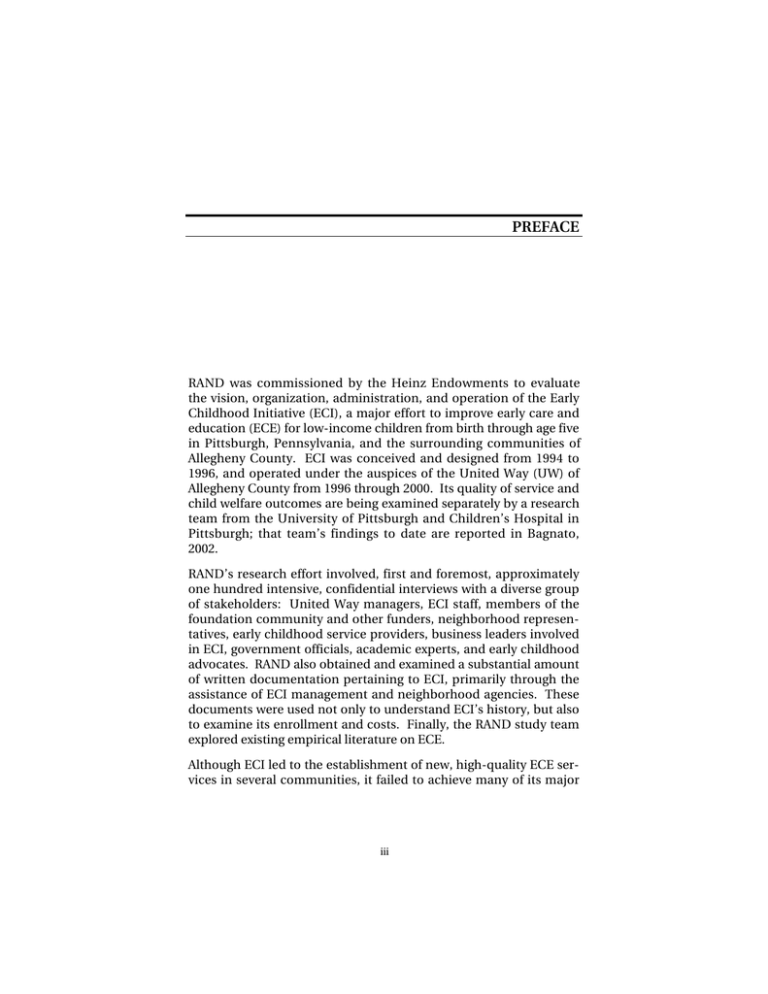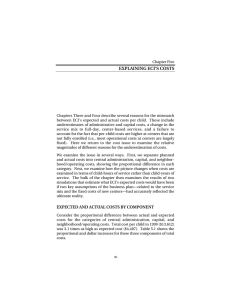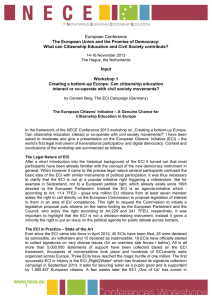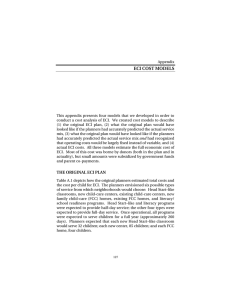PREFACE
advertisement

PREFACE RAND was commissioned by the Heinz Endowments to evaluate the vision, organization, administration, and operation of the Early Childhood Initiative (ECI), a major effort to improve early care and education (ECE) for low-income children from birth through age five in Pittsburgh, Pennsylvania, and the surrounding communities of Allegheny County. ECI was conceived and designed from 1994 to 1996, and operated under the auspices of the United Way (UW) of Allegheny County from 1996 through 2000. Its quality of service and child welfare outcomes are being examined separately by a research team from the University of Pittsburgh and Children’s Hospital in Pittsburgh; that team’s findings to date are reported in Bagnato, 2002. RAND’s research effort involved, first and foremost, approximately one hundred intensive, confidential interviews with a diverse group of stakeholders: United Way managers, ECI staff, members of the foundation community and other funders, neighborhood representatives, early childhood service providers, business leaders involved in ECI, government officials, academic experts, and early childhood advocates. RAND also obtained and examined a substantial amount of written documentation pertaining to ECI, primarily through the assistance of ECI management and neighborhood agencies. These documents were used not only to understand ECI’s history, but also to examine its enrollment and costs. Finally, the RAND study team explored existing empirical literature on ECE. Although ECI led to the establishment of new, high-quality ECE services in several communities, it failed to achieve many of its major iii iv A “Noble Bet” in Early Care and Education goals, despite the good intentions of everyone involved and despite the support of a wide array of community leaders. This report relays the results of RAND’s evaluation, which sought both to explain why ECI was not more successful and to suggest how future initiatives might produce better results. It describes ECI’s goals and objectives and articulates the breadth of the initiative’s ambition to create a comprehensive new system for delivering ECE to low-income children in Allegheny County. It also presents a narrative history of ECI—from its genesis in 1994–1996 through its scale-down and departure from the United Way at the end of 2000—and a critical analysis of ECI’s business plan and operations, explicating a number of reasons that the initiative fell short of its goals. Finally, since the report aims to be more than a postmortem analysis, it offers lessons for the future, alternative models for ECE initiatives, and public-policy implications. This report should have relevance not only for ECI’s stakeholders in Allegheny County, but also for funders, program developers, and policymakers around the country who are working on large-scale initiatives related to a variety of social service reforms.











